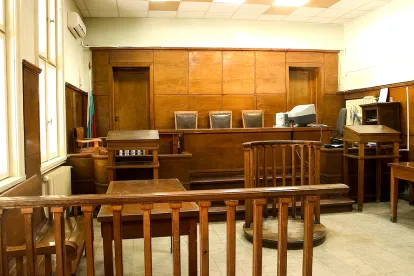The Czar previously blogged about the Ninth Circuit’s Henderson decision and the seemingly harsh consequences it has for vicarious liability of creditors. See Henderson v. United Student Aid Funds, Inc., 918 F.3d 1068 (9th Cir. 2019). Well, the Ninth Circuit just denied the defendant’s petition for re-hearing en banc and, in the process, somewhat clarified the law applicable to vicarious liability under the TCPA.
To recap, the issue in Henderson was whether a creditor is vicariously liable for TCPA violations of a debt collector. The Ninth Circuit panel first held that a creditor is not per se liable for acts of a debt collector. But then, it went on to hold that the creditor in that particular case could be found liable under a ratification theory because the creditor discovered the alleged TCPA violations in audits but still accepted payments made to the debt collectors who committed them.
But even accepting the court’s basic premise, there was a major complicating factor. And the defendant latched onto it to seek rehearing or rehearing en banc (i.e., where all 987 judges in the Ninth Circuit hear an appeal collectively).
The complicating factor was that the Ninth Circuit had previously held that ratification requires an underlying principal-agent relationship under California law. See Batzel v. Smith, 333 F.3d 1018 (9th Cir. 2003). But as two judges pointed out in rejecting rehearing, that’s California law, and the TCPA is federal. And under the main FCC vicarious liability opinion, federal common law and the Restatement (Third) of Agency, not state law, control. See In re Joint Petition Filed by Dish Network, LLC, 28 F.C.C. Rcd. 6574, 6574 (2013). The judges further reasoned that under the Restatement, ratification is an independent basis on which to find agency.
Applying federal common law to the TCPA does, of course, make sense. The TCPA is a federal statute and (in theory) should have the same meaning in all 50 states rather than be dependent on unique state law agency principals. That is why federal courts routinely incorporate federal common law principals into the TCPA; in fact, the Second Circuit relied heavily on the Restatement of Contracts in good-Reyes. But uniformity of federal law does ring somewhat hollow coming from the Ninth Circuit, which broke from the Third Circuit in Marks and created a circuit split on the even more fundamental question of the definition of an ATDS.
And as the Czar pointed out in our prior coverage, the Henderson panel’s reasoning is subject to criticism, even under federal common law principals. The evidence the court held could create an issue of fact was weak and the plaintiffs themselves engaged in wrongdoing by not paying their bills. Thus, even accepting the Ninth Circuit’s legal proposition, the case was still a solid candidate for summary judgment.
The upshot is that the Henderson panel’s holding that creditors are not automatically liable for TCPA violations of debt collectors is safe. The downside, though, is that the expansive interpretation of vicarious liability also remains in place. As that part of the decision is case-and-fact specific, it will hopefully be limited or corrected over subsequent decisions.




 />i
/>i

